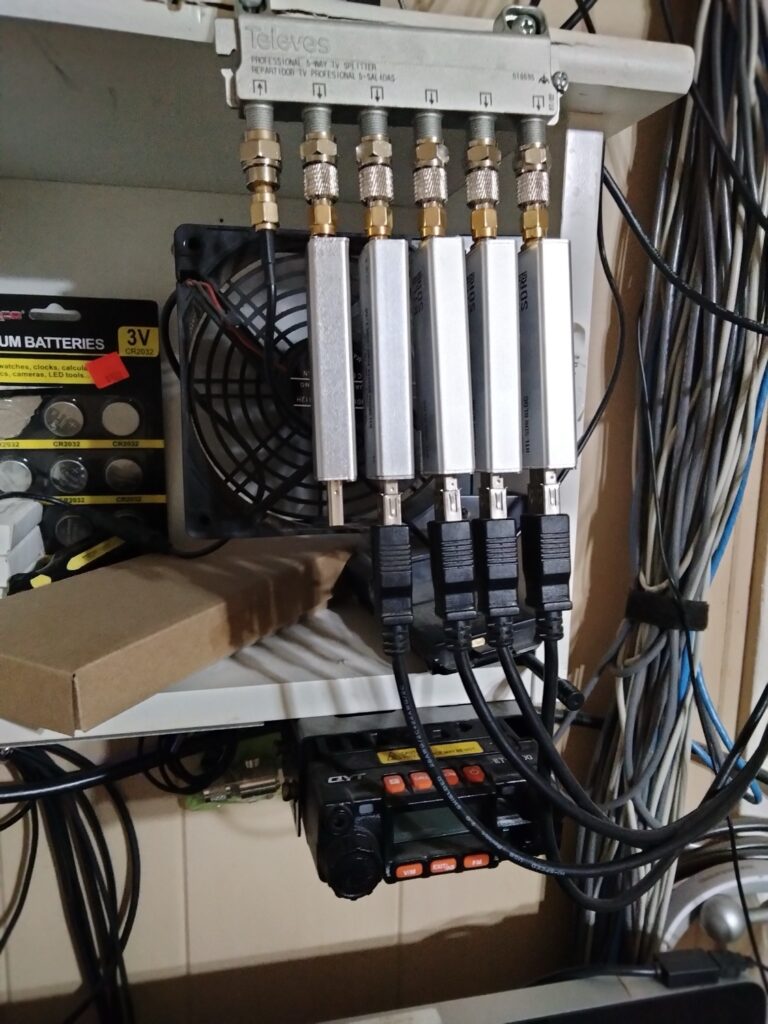As area first responders and public safety personnel make more use of encrypted radio communications, the residents who have traditionally tuned in to scanner traffic might be wondering about the loss of transparency.
Government officials say there are still options to hold them accountable.
In a culmination of years of planning and equipment upgrades, many area law enforcement agencies last week began using encryption for some kinds of radio communications. Anyone trying to listen in to those conversations without the proper equipment and a secret encryption code will just hear static.
Major Adam Blanton, Richmond Police Department’s public information officer, told WWN that the department is aware of the need to balance accountability and transparency against the safety of its officers and the public.
Blanton said radios remain an important part of coordinating actions in the field. “You can’t just yell or text” about last-minute changes, he said.
But if officers are conducting a sensitive operation and people following along on scanners or Facebook show up at a scene, Blanton said, it can cause confusion at best and possibly lead to dangerous situations.
Blanton said he has witnessed incident scenes where officers had trouble controlling the crowds that gathered, and is also aware of cases where suspects were listening to radio communications to avoid being apprehended. While the law might technically prevent someone from carrying police radio equipment, tuning in to a mobile app on their phone that carries the communications is allowed.

Richmond resident Bert Holbert Jr. is at the center of making those radio communications more accessible to area residents, even if they don’t have radio equipment themselves.
Holbert has for years been accumulating equipment and software to broadcast signals over the internet, and uses personal funds to maintain a bank of computers, radio tuner devices and broadcasting software in his home as a public service.
When WWN spoke with Holbert in 2024, he was monitoring and broadcasting channels for local police, the county sheriff, IU East and Reid Health police departments as well as various other local and state agencies. He said he’s seen up to 1,200 people listening to the stream he publishes at a given time, though the average was more like a hundred at a time.
Holbert said he understands that there’s a time for the use of encryption, such as when law enforcement is planning “a big raid,” but otherwise favors the need for transparency.
“If it’s not officer safety, I think openness and transparency is a good thing,” Holbert said.
State law already dictates that certain sensitive information cannot be broadcast over open channels, but that doesn’t prevent someone from having an embarrassing or potentially criminal act shared with the world in real time.
“Some of the more unsavory aspects come out, it’s more visible, some people want to hide that, I get it,” Holbert said. “I’m not someone who wants to hide them. Every city has their bad things.”
Holbert says he listens to the radio conversations “24 hours a day.”
Now with encryption available, the scanner traffic available to the public will be a bit quieter.
Blanton says that agencies can still technically choose to use unencrypted or encrypted channels depending on the situation, but admits that for law enforcement purposes, “you can’t make the decision about what channel to use in a tough situation” and so encrypted will be the default.
Matthew Cain, director of emergency communications for Wayne County, said his office has been working with law enforcement agencies to make sure the public can still hold the government accountable.
“We certainly take pride in ensuring transparency while adhering to legal guidelines to protect sensitive information,” Cain said.
An online tool is available at waynecounty911in.nextrequest.com that allows anyone to make a public records request involving emergency communications, including recordings of radio communications routed through the county’s dispatch center. Requests can also be made in person at 401 E. Main St., Richmond.
Cain says that emergency dispatch reports will usually be available within 5-10 business days and audio recordings of radio communications within 10-15 business days. From Jan. 1, 2024 through Jan. 14, 2025, Cain reported that they received 684 requests; 670 were closed, 14 remained open, six were overdue and one was paused. During that time, the median time to fulfill requests was four days, with 590 reports fulfilled within 10 days.
Sensitive information such as dates of birth, Social Security numbers, health information and information involving juveniles may be redacted or excluded. Requests for agency-specific documentation and recordings like crash reports, official police reports, body camera footage and in-car camera video still have to be directed to individual agencies.
A version of this article appeared in the February 5 2025 print edition of the Western Wayne News.
